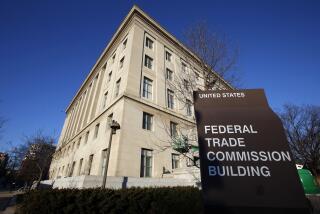Proposed rule would require fee comparison for 401(k)s
- Share via
If you have a 401(k) account, it soon may get easier to figure out how much you’re paying in fees.
Under a rule proposed by the U.S. Labor Department on Tuesday, an employer that sponsors a 401(k) plan would have to provide a side-by-side comparison of the expenses and historical returns of the plan’s investment options. Currently, employees often have to piece together that information from multiple documents.
“It’ll help eliminate confusion in the sense that people will have the information they need, the basic information in a usable format to make decisions about how to invest for their retirement,” said Bradford P. Campbell, assistant secretary for the Labor Department’s Employee Benefits Security Administration.
Companies also would have to tell participants every quarter how much they are paying in 401(k) administrative costs -- information that many employers don’t currently provide.
The proposal follows criticism by lawmakers and others who say it can be impossible to figure out how much an account holder is paying in fees.
In 2006, The Times reported that hidden fees were quietly eating into the nest eggs of millions of workers with 401(k) accounts.
“Without this regulation, it is difficult-to-impossible for a 401(k) plan participant to determine the actual cost being charged against their account,” said Dennis Lynch of Ipswich Bay Financial Resources, a 401(k) consulting firm in Danvers, Mass.
The Labor Department estimates that the plan would save workers $6.1 billion through 2018 -- but two-thirds of that amount represents savings in the estimated time people would spend analyzing their 401(k) investments.
The department also plans to require 401(k) managers and consultants to disclose previously hidden financial ties such as payments from mutual fund firms to consultants who advise employers on which funds to offer in their plans.
After a period for comment and review, the rules are expected to take effect Jan. 1.
--
More to Read
Inside the business of entertainment
The Wide Shot brings you news, analysis and insights on everything from streaming wars to production — and what it all means for the future.
You may occasionally receive promotional content from the Los Angeles Times.










